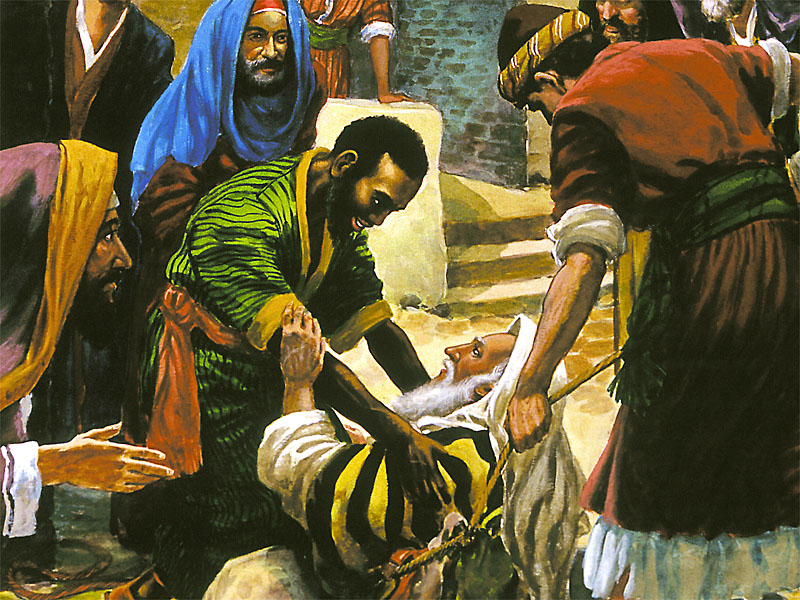The seasons of life pass quickly. We are in desperate need of Moses’ prayer, “So teach us to number our days, that we may apply our hearts unto wisdom.” (Psalm 90:12)
Only with God’s help may we hope to be prepared for what the different seasons bring. An inevitable season for most is old age. This season is one in which we cannot do as much by ourselves. We need more physical help from others than was necessary in youth and middle age.
In most cases, however, before we reach that season, our parents do. It rests on us, their children, to make some decisions about how and where our dear parents’ time will be spent. These issues are not always pleasant to think about; nevertheless, as mature men and women, we have a duty before God that we dare not neglect until the eleventh hour. Part of that duty concerns the care of elderly parents.
From birth, a child’s duty to his parents is summarized in the Fifth Commandment: “Honour thy father and thy mother: that thy days may be long upon the land which the LORD thy God giveth thee.” (Exodus 20:12)
If we honor our parents, we will have long life. (This does not mean that a deceased twenty-five-year-old was necessarily a dishonoring son. He might have been. Or he might have been a godly, honorable, upright young man whom God called home to eternal rest and glory sooner than most of his peers. Perhaps twenty-five years was already a lengthening of his days.)
The Golden Rule also applies. “Therefore all things whatsoever ye would that men should do to you, do ye even so to them: for this is the law and the prophets.” (Matthew 7:12) How do we want to be treated in old age? Do we want to be treated the way most older people are in twenty-first-century America?
In America today, the elderly are generally seen as a burden or a bother—a hindrance in the worship of the beloved idols Self, Pleasure, Mammon, and “Good of Society”. Grandparents are neglected as many of the next generation scatter and settle in different states. It is expected that the government will take care of their needs, whether through federal programs such as Social Security and Medicare or locally-subsidized programs.
When the parents are unable to live alone any longer, they are placed in a nursing home or assisted living facility. Whether they are working through physical, mental, or emotional problems, they are left to fend for themselves with the aid of caregivers, nurses, and doctors. The children may be called upon to make crucial decisions or may be disposed to pay an occasional visit. Generally, however, the generations turn to their own ways—like sheep (Isaiah 53:6)—and have as little to do with the preceding ones as possible. What a sad state of affairs!
Why should we not do as the world does? Why should we care for our parents? Can we really offer them better care than what they would receive from professional workers in a nursing home?
Yes, I believe we can. We may not be professional nurses or therapists, but we are their children. We should know their specific needs, personalities, and idiosyncrasies. We can really give them cause to rejoice in the Lord when they see their children and grandchildren walking faithfully with Him. Possibly, we could lengthen their lives.
How can this be? Of course, God has ultimate control over health and illness, life and death. However, the conditions in which a human lives do affect the length of his life. For example, most rural Americans live longer than most rural Africans because of the availability of clean water, nutritious food, medical care, safe and warm housing, and sanitary facilities.
Likewise, if Grandfather lives with the next generation instead of alone, his son or grandson will do the outdoor work and lifting. He will not become fatigued as quickly, but have more energy to spend time investing in future generations.
If Grandmother lives with the family instead of in a nursing home, she will be surrounded and cared for by people who really love her. She is not one of fifty they have to serve. Her family has time to listen to her and show her their affection. Seasons of long idleness or being neglected much of the time in a nursing home could occasion despondency or discouragement, which could shorten her days. “A merry heart doeth good like a medicine; but a broken spirit drieth the bones.” (Proverbs 17:22) Encouragement from family could help prolong her health. We must take care of family as long as we possibly can.
When Christ was on the cross, He showed Divine compassion on every human but Himself. He pitied His murderers and interceded for their forgiveness before the Father. He showed mercy on us all through His passion, making a way for us to renew fellowship with God. And He ensured that His mother would be well taken care of after His death.
“When Jesus therefore saw his mother, and the disciple standing by, whom he loved, he saith unto his mother, Woman, behold thy son! Then saith he to the disciple, Behold thy mother! And from that hour that disciple took her unto his own home.” (John 19:26-27)
Life holds many challenges and painful times for each of us. Caring for older parents will not be easy, just as most of life. But none of us will ever have to go through what Jesus did—bearing the sins of the whole world, being forsaken for a time by the holy God, hanging on a cross in solitary darkness. In His agony, He remembered His mother and made sure she had a physical home and provider, just as He was even then providing a way for her and us to have a home in Heaven.
As we consider the sacrifice full-time care of our parents will require, we must also consider the full-time care they sacrificed to give us in our childhood. Feeding us, clothing us, caring for us when we were sick, teaching us basic skills such as combing our hair and dressing…these would make up the minimum most babies and toddlers would hopefully receive from their parents.
Unfortunately, in the socialistic America we have today, the government strives to make itself both god and family to citizens. About half the population is on one government program or another. The majority of children are educated in government schools; and, if both parents work outside the home, the children likely spend most of their first few years in daycare.
A given daycare may not be directly subsidized by tax dollars, but the culture at large does encourage and pressure parents to pursue money and forsake time with their children as much as possible. Thus some children of the modern and crazed era may not have had the privilege of as much time with their parents as others.
In any case, according to the Bible, we must support our parents. We exist today, to some extent, because our parents accepted God’s gift of a child and the challenges (and joys) that accompany this gift.
We have seen the Scriptural mandate restated in Proverbs 23:22, which says, “Hearken unto thy father that begat thee, and despise not thy mother when she is old.” Parents and grandparents are precious treasures from the Lord. Let us not forsake them! Let us love them, take care of them, hearken unto them, honor them, thank God for them, and show our gratitude in as many ways as possible.
“The hoary head is a crown of glory, if it be found in the way of righteousness.” (Proverbs 16:31) “Children’s children are the crown of old men; and the glory of children are their fathers.” (Proverbs 17:6) Our parents are our glory, and our children are their crown. Generations together serving the Lord—what a beautiful but rare thing! For any of us who are blessed with living parents and grandparents, striving towards this is a sure part of our holy calling.
![]()
Copyright © 2014













